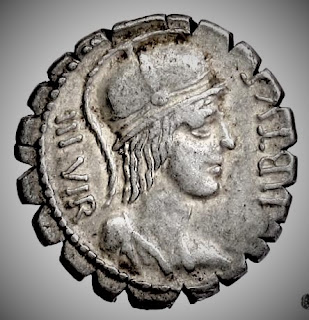It’s all the rage these days… No matter the position on the political spectrum, folks go out of their way to illustrate their righteousness.
Dubbed ‘virtue signaling’, it takes form in the humblest facebook profile (whether it’s become the latest color, supports the trendiest badge or flies the appropriate flags), all the way to whatever messages sprayed on $100,000 dresses worn by ‘it’ people on fancy carpets.
But what effect do these hashtag missions have? Are they divisive… or do they promote greater morality? Do they feed from and into mob mentality… or are they just a way to… show off?
‘Arete-signaling’, as I like to call it, would have fit in better in the ancient world. We can all agree (I hope) that living a life in search of Arete (the ancient Greek concept for virtue) is a good thing. After all, that’s basically Aristotle’s schtick. The point of virtue is to live life well, to perform exceptionally at being a human being, and it is this complete virtue which is the key to happiness.
Great, so you are virtuous. Does everyone else need to know that?
| Well, in the ancient Greek world, yes. As a community based culture that relied more on shame than guilt, what others thought of you – your reputation as an individual as well as within your family name – was essential. For instance, let’s look at the term “Kleos”, which is usually roughly translated into ‘Glory’. This can be misleading though, as us moderns can see glory as potentially resulting from an array of sources, including from within. To the Greeks, however, Kleos was more specifically what others said about you. Many times the story of your actions was more important than whether the action even took place or not! (I think the Odyssey proves this point nicely). To this effect, ‘Arete-signaling’ would have been very popular… in both ancient Greece and Rome. This could be achieved with an array of methods, such as the creation of public works, statues or actual coins telling everyone how great you are. The Republican moneyer, Mn. Aquillius, who was Consul in 101 BC, issued literal ‘virtue’ coins to get his point across. This virtue coining was so popular, it was also done by Septimius Severus, Trajan, and Caracalla. |
| Similarly, the first Roman Emperor Octavian-turned-Augustus, spent some serious denarii making sure everyone and their dog knew exactly how ‘virtuous’ he was… from elaborate monuments to whole epics, Augustus portrayed himself not only as incredibly moral, but in direct contrast to the ‘decadent and depraved’ Antony and Cleopatra. Indeed, it’s only relatively recently that we are seriously questioning this official narrative, and attempting to see events (like the pivotal battle of Actium) from alternative perspectives. NB: If you haven’t already registered, make sure to save your spot for our upcoming panel on the War that Made the Roman Empire. This Wednesday at Noon EST, we’ll discuss how Octavian won… what role Cleopatra really had… and the exciting new archeological discoveries that tell a very different story than what was previously thought…. Register HERE -> https://actium.eventbrite.ie/ |
All this is to say that in the ancient world it was what people said about you that often figured most.
This view, however, changed dramatically with Judeo-Christianity. In the ‘guilt’ culture, the afterlife looms heavy as a punishment…it no longer matters whether anyone else knows the action (either virtuous or sinful), because God does… as well as the person who committed the action. (Here Dostoevsky’s Crime and Punishment would be an excellent example).
This redirection on the individual, on the internal thoughts and motivations rather than the public display, has continued to this day… or has it?
And it is here that we come to today’s mailbag question, dear reader. Are acts of virtue greater when others know about it? Or is the act itself the most essential? Or furthermore, is it more virtuous when done in private?
Essentially: Is Virtue Less Virtuous if Known and Shown?
As always, you can write to me directly at [email protected] or comment below.













No comments yet. You should be kind and add one!
Our apologies, you must be logged in to post a comment.